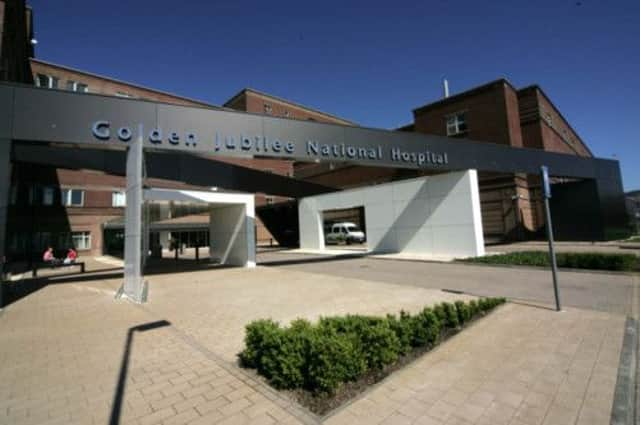Virus injected into the heart may save thousands


The first of 200 patients from around the world will be treated at hospitals in Glasgow and London in the next three to six weeks. All suffer from severe chronic heart failure, both due to the after-effects of heart attacks and inherited conditions.
Doctors at the Royal Brompton Hospital, London, and the Golden Jubilee National Hospital, Glasgow, will randomly treat half the patients with a harmless virus carrying a corrective gene. The rest will receive an inactive placebo treatment.
Advertisement
Hide AdAdvertisement
Hide AdPrevious research suggests that a protein produced by the gene can restore function to failing hearts, and reduce the risk of death and heart transplants.
Heart failure occurs when the heart is too weak to pump blood efficiently around the body, leading to breathlessness and exhaustion. In severe cases, even minor levels of physical activity such as a short walk to the shops prove too much for patients.
Although Glasgow recently shook off its dubious title of heart-disease capital of the UK, rates remain high with the British Heart Foundation saying the city had 128 deaths per 100,000 people caused by coronary heart disease, according to the latest figures for 2009-11.
Lead investigator Dr Alexander Lyon, consultant cardiologist at the Royal Brompton Hospital, said: “Heart failure affects more than three quarters of a million people across the UK. Once heart failure starts, it progresses into a vicious cycle where the pumping becomes weaker, as each heart cell simply cannot respond to the increased demand.
“Our goal is to fight back against heart failure by targeting and reversing some of the critical molecular changes arising in the heart when it fails.”
The Cupid 2 trial is taking place in conjunction with US biotech company Celladon, which has patented the treatment.
The therapy involves injecting the virus into the heart via a catheter. As the virus infects the heart cells, it implants the corrective gene. This has the effect of increasing levels of a protein called SERCA2a which plays a key role in a vital “signalling mechanism” involving calcium.
“When the heart muscle is injured, it activates a series of compensatory changes, but over time fatigue sets in which results in the natural version of this gene switching off,” said Dr Lyon. “When the gene is repaired, it produces more of the functional protein and the problem is reversed.”
Advertisement
Hide AdAdvertisement
Hide AdLaboratory studies indicate that once the defect is repaired, the gene continues to function, at least over a lengthy period of time.
Some patients from Cupid 1, an earlier pilot trial in the US involving just 39 patients, are still in a stable condition after three years.
Cupid 1 also showed that the gene therapy halved the risk of death, having to undergo a heart transplant, and other serious cardiac “events”.
The new study will assess whether the treatment is safe, reduces emergency hospital admissions, and improves quality and length of life.
Patients will have their condition monitored for at least 12 months and the first results should be released in two to three years.
Professor Sian Harding, head of the British Heart Foundation (BHF) Centre for Regenerative Medicine at Imperial College London, whose team developed the therapy, said: “It’s been a painstaking, 20-year process to find the right gene and make a treatment that works, but we’re thrilled to be working with cardiologists to set up human trials that could help people living with heart failure.”